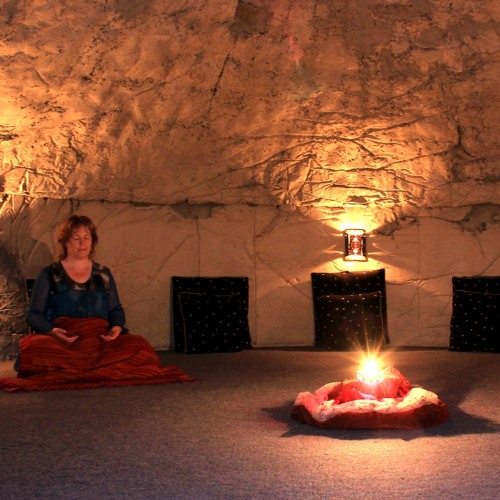At ICPPD all our programmes have a holistic aspect, and on our 3 year Academic and Professional Programmes in Holistic Counselling and Psychotherapy one of the ways we introduce this to adult learners is through a module on Psychosynthesis.
How does Psychosynthesis promote personal and spiritual development? What do we mean by spiritual?
ICPPD promotes a body, mind spirit philosophy where the person is seen to have the potential for integration and wholeness. Spirituality has been defined as – The vital principle or animating force within living beings. The English word spirit (from Latin spiritus “breath”) has many differing meanings and connotations, all of them relating to a non-corporeal substance contrasted with the material body. Spirituality can refer to an ultimate reality or transcendent dimension of the world; an inner path enabling a person to discover the essence of his or her being, or the “deepest values and meanings by which people live.”

From Carl Jung and others in the field of Psychology, Psychotherapy and Anthropology there is an acceptance of what is known as transpersonal qualities. These attributes and qualities that the human being appreciates include the following:-
BEAUTY, COMPASSION, COMPREHENSION, COURAGE, CREATIVITY, ENERGY, POWER, ENTHUSIASM, ETERNITY, INFINITY, UNIVERSALITY, FREEDOM, LIBERATION, DETACHMENT, COOPERATION, FRIENDSHIP, BROTHERHOOD, GENEROSITY, GOODNESS, GOODWILL, GRATITUDE, APPRECIATION, ADMIRATION, WONDER, HARMONY, HUMOR, INCLUSIVENESS, JOY, BLISS, LIGHT, LOVE, ORDER, PATIENCE, POSITIVENESS, REALITY, TRUTH, RENEWAL, TRUST, FAITH, SERENITY, PEACE, SERVICE, SILENCE, QUIET, CALM, SIMPLICITY, SYNTHESIS, WHOLENESS, UNDERSTANDING, VITALITY, WILL, WISDOM.

Psychosynthesis is an approach to self that includes our spiritual as well as our physical, emotional and mental needs. Psychosynthesis aims to move us away from fragmentation and pain and towards integration and joy through including both the lighter and the darker sides of life.
Psychosynthesis brings together the two traditions of psychology and mysticism. Psychology is then infused with a sense of soul and meaning, whilst the mystery traditions benefit from the grounding and reflective qualities of psychology.
Our approach to Psychosynthesis includes cutting edge practices for personal and spiritual development whilst closely following the original intention of Roberto Assagioli, the founder of Psychosynthesis, to include both psychological theory and the best from both Western and Eastern Mystery traditions. He said, in Psychosynthesis, ‘… we shall discover in ourselves hitherto unknown abilities, our true vocations, our higher potentialities which seek to express themselves, but which we often repel and repress through lack of understanding, through prejudice or fear.’
Psychosynthesis restores soul as the central focus of our work, and honours the dark side of our nature as equally part of the soul’s journey as is the light. A deeper sense of meaning and value is revealed, which creates a psychic environment (or ‘field’) in which both individuals and groups of people are enabled to make decisions about who they are and what they want.
Psychosynthesis is applied in many different areas of life, not just in counselling and psychotherapy, and the primary aim is to apply Psychosynthesis to whatever areas of life our deepest inner sense of values leads us. Doctors, social workers, teachers and business people of all types train in Psychosynthesis and it is respected in many different areas of work. It can also be applied in the home, in relationships, in child rearing and all aspects of daily life. It is usefully applied in creative endeavours, including writing and art, both its creation and appreciation.

Background to Psychosynthesis
Psychosynthesis was developed early last century by Roberto Assagioli, an Italian doctor who wanted to bring together the two traditions of psychology and mysticism. He saw that psychology was becoming rather dry and rational and needed infusing with a sense of soul and meaning, whilst those who practice the mystery traditions could benefit from the grounding and reflective qualities of psychology.
Since his time, Psychosynthesis has been developed into an integrative approach to growth and healing. Its aim is to help us discover our true spiritual nature, then to effectively utilise this discovery in everyday life. Without dogmatism or prescription, Psychosynthesis addresses both personal and spiritual development, honouring the unique creativity and path of each individual, their place in the world and in relationship.

Psychosynthesis is a practical system that integrates principles and techniques from many approaches to personal and spiritual growth. It is not about the application of techniques, however, but learning to live with a vision that comes from deep within oneself.
Psychosynthesis, being truly integrative and holistic, is the most important psychology for the 21st Century as it gives us a perspective that can bring meaning to both our individual and collective acts. So does this grand claim have any validity?
It is true that many people have not heard of Psychosynthesis, of course, but amongst those that have it is usually thought of as a form of psychotherapy. Whilst this is one of its applications, Psychosynthesis is in fact a lot more than that and is applicable not just in therapy but in all levels of education, business, in social and economic arenas, in healing, parenting, medicine in fact, all areas of human activity.

We have moved into a new world where each individual has their own unique way of perceiving and interacting with the world based not only on the past traumas and so on that were experienced during childhood, as is presented in the Freudian world view. We also have potential, the ‘future’ within us which, through proper attention, can be brought to life and manifest in ways that bring a deep sense of purpose and meaning to life. In our modern world anything that increases our sense of meaning has to be good. Psychosynthesis works to uncover the creative and spiritual energy within each of us which can illuminate whatever are our areas of interest.
For Assagioli, Psychosynthesis was a consciously inspired vision of how the best psychological and esoteric understandings of the human psyche can be applied in a relevant, meaningful way that should work for everyone whatever their beliefs. Over the course of his life Assagioli fine-tuned the system, not to create an eclectic mishmash but a potent synthesis. Thus we find in Psychosynthesis elements of various therapies, from analytical through humanistic to transpersonal, coupled with practices adapted from spiritual and esoteric traditions.
I hope this brief description of the roots and uses of Psychosynthesis will wet your appetite for more. To quote Assagioli, through studying Psychosynthesis, we can ‘begin to discover the secrets we are looking for, and attain a conscious contact with the Existence of which we are an inseparable part.’
ICPPD offer Academic and Professional Programmes in Holistic Counselling and Psychotherapy. For more information visit our website or contact us today.
Images sourced from Google Images.








